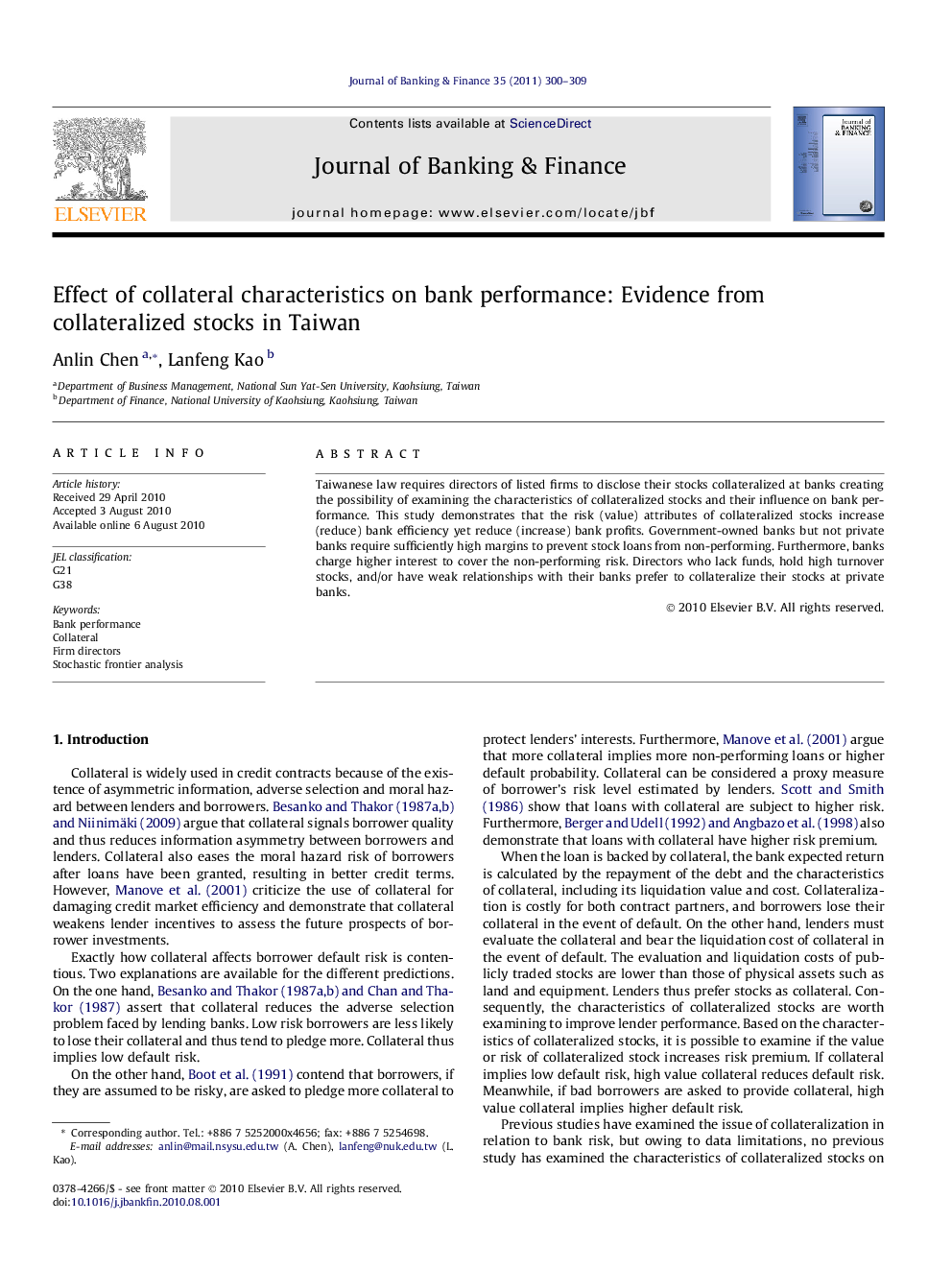| Article ID | Journal | Published Year | Pages | File Type |
|---|---|---|---|---|
| 5090570 | Journal of Banking & Finance | 2011 | 10 Pages |
Abstract
Taiwanese law requires directors of listed firms to disclose their stocks collateralized at banks creating the possibility of examining the characteristics of collateralized stocks and their influence on bank performance. This study demonstrates that the risk (value) attributes of collateralized stocks increase (reduce) bank efficiency yet reduce (increase) bank profits. Government-owned banks but not private banks require sufficiently high margins to prevent stock loans from non-performing. Furthermore, banks charge higher interest to cover the non-performing risk. Directors who lack funds, hold high turnover stocks, and/or have weak relationships with their banks prefer to collateralize their stocks at private banks.
Related Topics
Social Sciences and Humanities
Economics, Econometrics and Finance
Economics and Econometrics
Authors
Anlin Chen, Lanfeng Kao,
